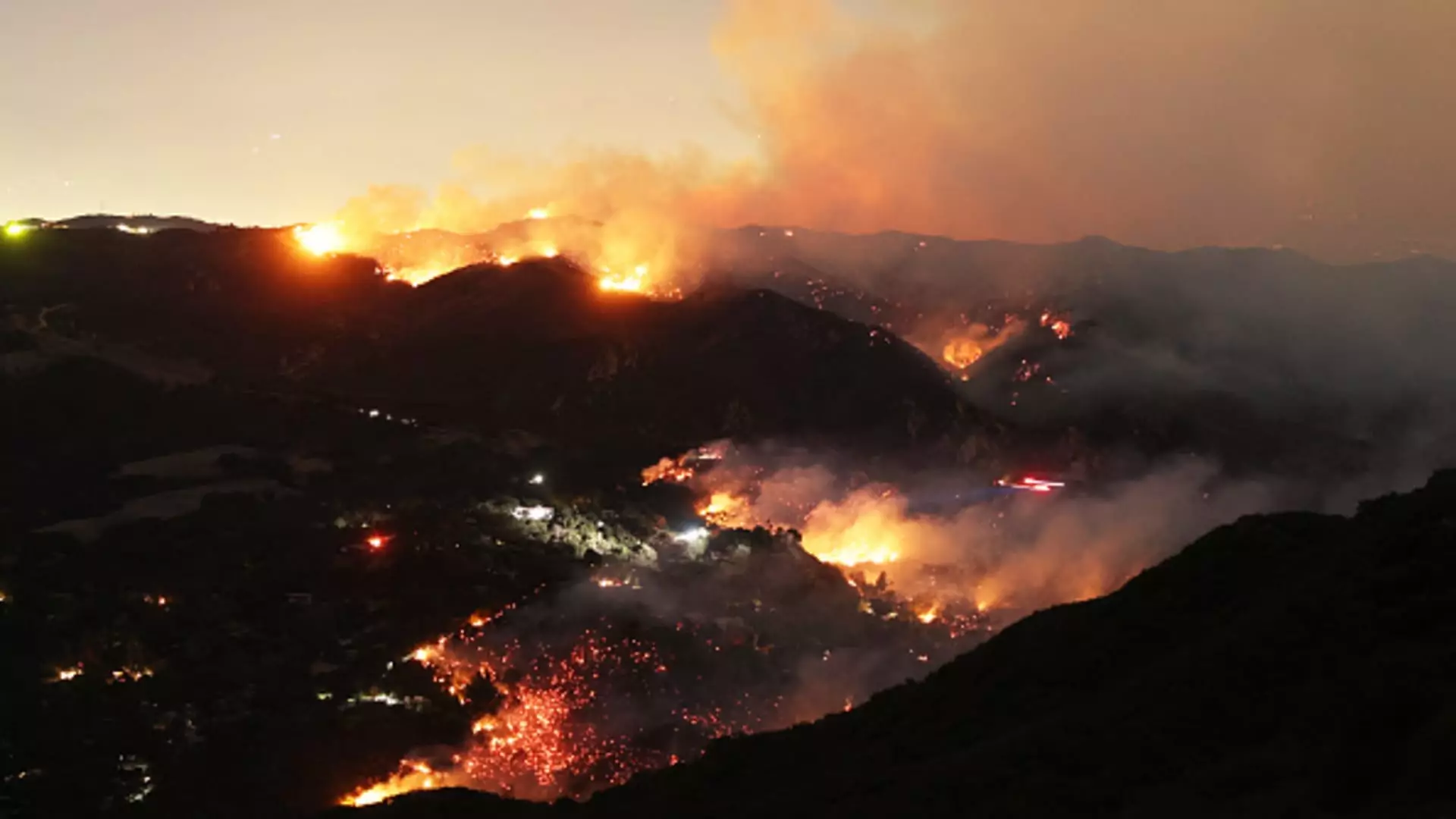The relentless wildfires in Southern California have wrought devastation over the past week, scorching over 40,000 acres and resulting in the destruction of more than 12,300 structures. This catastrophe has prompted widespread evacuations, affecting approximately 88,000 residents in the Greater Los Angeles area. With insured losses projected to exceed $20 billion, it is critical for those impacted to navigate the complex process of recovery, particularly concerning insurance claims and available aid.
As affected individuals begin to grapple with the aftermath of such overwhelming loss, the immediate step toward recovery is often initiating the insurance claim process. Karl Susman, an insurance broker based in Los Angeles, emphasizes that survivors do not need to wait for all fires to be completely extinguished to file a claim. He urges victims to “get your claim filed as quickly as you can” regardless of the situation at their homes. The swift filing of claims is essential to expedite recovery as insurance companies are anticipated to experience delays due to the surge in applications.
Homeowners are not the only ones facing daunting challenges; renters also encounter unique hurdles following a disaster. Shannon Martin, an insurance agent, highlights that renters possess similar rights and resources as homeowners when dealing with the aftermath of a wildfire. It is vital for renters to reach out to their insurance providers to inquire about “loss of use” coverage, which can assist in temporary housing arrangements. Documentation of every related expense, from housing to basic needs, is crucial for securing reimbursements and showing proof of loss.
As survivors navigate this tumultuous period, documentation becomes their greatest ally. Douglas Heller, director of insurance at the Consumer Federation of America, strongly advises claimants to meticulously document their experiences. This includes keeping receipts for any necessary expenses incurred during evacuation and ensuring that all correspondence with insurers is recorded. Meticulous records will simplify the reimbursement process, making it easier to demonstrate expenses that resulted from the fire.
In the chaos that follows a wildfire, it is also important to consider utilities. For homeowners and renters whose properties have sustained significant damage, contacting utility companies to temporarily halt services can be a wise decision. This action not only alleviates financial burdens but is often necessary based on the status of the property. Furthermore, if a vehicle was lost in the blaze, policyholders should check their auto insurance for comprehensive coverage, which typically includes wildfire damages. Understanding these nuances is critical as they can provide a financial cushion during recovery.
Navigating through insurance and financial support can be overwhelming, especially with the potential tax implications that arise from significant property damage. Homeowners who face losses exceeding $10,000 may apply for property tax reductions through their county assessor’s office while their homes remain vacant or under repair. This little-known resource can ease financial pressures as individuals work towards recovery.
Moreover, for the uninsured or those whose coverage lapsed prior to the disaster, any potential federal or state aid can play a crucial role. President Joe Biden recently confirmed a one-time FEMA payment of $770 for victims, further highlighting the importance of registering for assistance. Resources such as DisasterAssistance.gov serve as vital tools for those inflating for financial aid.
Survivors are encouraged to engage with local support groups and community resources that can help rebuild lives and provide essential services. Workshops and outreach initiatives hosted by the Insurance Commission of California play a significant role in connecting individuals with the right resources and guidance. The events scheduled in January at local colleges in Santa Monica and Pasadena are just a few examples of how organizations are stepping up to offer assistance and information to those affected.
The relentless march of wildfires in Southern California has undoubtedly left a trail of destruction in its wake, prompting urgent action from survivors as they begin to pick up the pieces. From filing insurance claims and documenting losses to seeking community support and governmental assistance, every step plays a vital role in recovery. While the path forward may seem daunting, armed with the right information and resources, individuals can navigate this challenging landscape toward a hopeful recovery.

